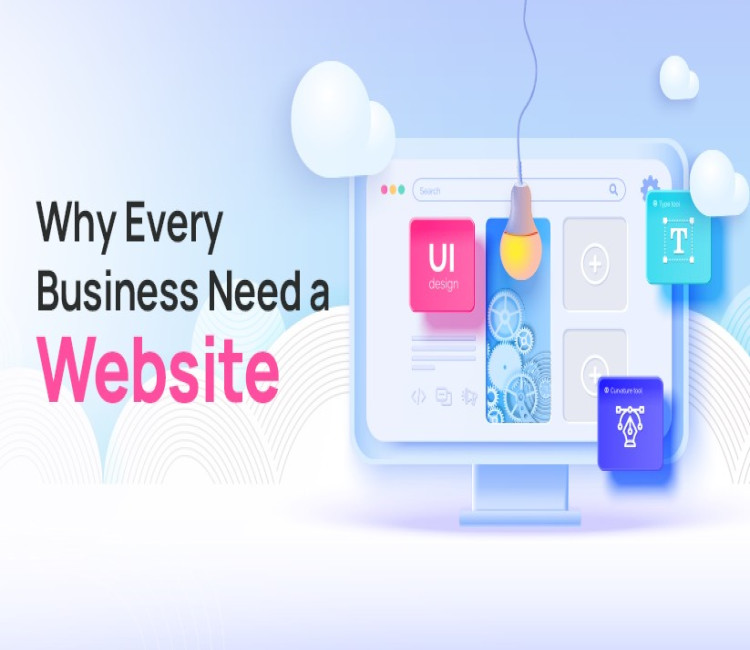Why Every Business Needs a Website (Not Just Social Media)
In today’s digital-first world, most businesses know they need an online presence. Many start with social media pages on platforms like Facebook, Instagram, or LinkedIn. While social media is powerful for engagement, relying only on these platforms is risky.
The truth is, every business—big or small—needs a website. A website acts as the foundation of your digital presence, giving you credibility, control, and long-term growth opportunities that social media alone cannot provide.
This guide explains why having a dedicated website is essential and how it can work together with social media to maximize business success.
1. Ownership & Control Over Your Online Presence
Social media platforms are owned by third parties. This means:
-
Algorithms change frequently, affecting your reach.
-
Your account can be suspended or restricted anytime.
-
You don’t fully own your content or followers.
With a website:
-
You own your domain, content, and customer data.
-
No algorithm can limit how your visitors find you.
-
You control the design, functionality, and user experience.
👉 Think of social media as renting space, while a website is owning your property.
2. Increased Credibility & Professionalism
Consumers trust businesses with a professional website more than those with only social media pages. A website:
-
Acts as your digital storefront that runs 24/7.
-
Builds trust and legitimacy, especially with features like an About page, testimonials, and contact details.
-
Helps small businesses compete with larger brands.
Without a website, some customers may think your business isn’t “serious” or established.
3. Better Visibility on Search Engines (SEO)
Billions of searches happen daily on Google. If your business doesn’t have a website, you’re invisible to potential customers searching online.
With a website, you can:
-
Rank on search engines for relevant keywords.
-
Drive free, organic traffic to your business.
-
Use local SEO to attract nearby customers.
Social media posts rarely appear in search results, but a website optimized with SEO can be a long-term traffic engine.
4. Showcase Products & Services Effectively
Social media has limited layouts and formatting. A website allows you to:
-
Display detailed product/service descriptions.
-
Add e-commerce functionality with shopping carts and payment gateways.
-
Provide case studies, blogs, and resources to educate customers.
This flexibility ensures you present your business exactly the way you want.
5. Stronger Branding & Customization
On social media, your profile looks similar to competitors—same design, same layout. With a website:
-
You can fully customize your brand colors, fonts, and layouts.
-
You create a unique identity that stands out.
-
Visitors remember your brand, not just the platform.
This branding freedom is crucial for long-term recognition.
6. Direct Customer Communication & Data Ownership
Social media platforms limit how much customer data you can access. With a website, you can:
-
Collect emails via forms and newsletters.
-
Track user behavior through analytics.
-
Build remarketing strategies for future sales.
Owning customer data gives you more control over marketing and prevents dependency on external platforms.
7. More Sales & Conversions
While social media is good for awareness, a website is where conversions happen. Websites:
-
Offer online shopping, bookings, or inquiries.
-
Provide detailed sales funnels and checkout experiences.
-
Let customers take action immediately (buy, book, contact).
This direct conversion power is something social media alone cannot provide.
8. Long-Term Cost Efficiency
Running ads only on social media can be expensive. A website helps reduce costs by:
-
Driving organic SEO traffic (free visitors).
-
Allowing content marketing (blogs, guides, videos).
-
Providing better ROI compared to only paid campaigns.
Over time, a website becomes a cost-effective marketing asset.
9. Security & Reliability
Social media accounts can be hacked or banned, leaving you helpless. With a website:
-
You can secure your domain with SSL certificates.
-
Backup your data regularly.
-
Stay reliable with 24/7 uptime and hosting services.
This ensures your business presence is safe and consistent.
10. Works Together With Social Media
Having a website doesn’t mean ignoring social media. Instead, both should work together:
-
Use social media for awareness and engagement.
-
Use your website for conversions and authority.
-
Link your website in all social media bios and posts.
This integrated strategy ensures you reach customers everywhere.
Final Thoughts
Social media is a powerful marketing tool, but it should never replace a dedicated business website. A website provides ownership, credibility, SEO visibility, branding freedom, and better sales opportunities.
Think of it this way: Social media is the crowd, but your website is the stage. To truly stand out, you need both.
If you don’t already have a business website, now is the perfect time to build one—because in today’s competitive market, a website is no longer optional; it’s essential.


